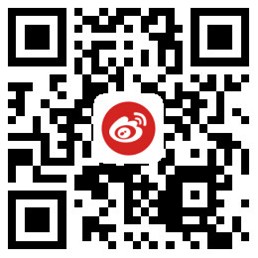

Across factories in South China, millions of young Chinese spend their days churning out garments for consumers in Japan, South Korea, Europe and the US. For many of the workers, their most important piece of equipment — after the umbilical smartphone — is a sewing machine made by Juki.在中国华南地区的一座座工厂内,数百万名中国年轻人每天为日本、韩国、欧洲和美国的消费者们生产着服装。对许多制衣工人来说,他们最重要的设备——除了必不可少的智能手机以外——是一台Juki牌缝纫机。The Tokyo-based company, which started making sewing machines in 1947, has customers in 170 countries from China to the Vatican. While some of the big manufacturers — such as Sony — that were synonymous with the rise of Japan have lost their lustre, Juki is an example of the low-profile companies sustaining Japan’s economy.总部坐落于东京的Juki公司从1947年开始生产缝纫机,客户遍布从中国到梵蒂冈的170个国家。
当一些与日本实时兴起的大厂商——如索尼(Sony)——丧失了昔日的光彩,像Juki这样高调的企业拉起了日本经济。The business is the leading player in the industry, with 30 per cent of the market, and is especially popular among manufacturers that produce for multinational retailers. “It’s rather a personal preference, like choosing a car,” says Gerhard Flatz, managing director of the Chinese apparel manufacturer KTC, which uses Juki for more than 90 per cent of its machines. “But Juki machines are as reliable as a draught horse.”Juki是业内的龙头企业,享有30%的市场份额,特别是在在跨国零售商的代工商中间尤其风行。中国服装制造商KTC所使用的机器90%以上都是Juki的,总经理格哈德弗拉茨(Gerhard Flatz)说道:“这更加看起来个人爱好,就像选车一样。
但Juki的机器就像扶马一样可信。”TAL, a Hong Kong apparel maker whose clients include Brooks Brothers and Burberry, says at least 80 per cent of its machines are Juki. Harry Lee, TAL chairman and a leading figure in the Hong Kong garment trade, says the Japanese group owes its success to the close relationship it builds with its customers.香港服装生产商联业制衣(TAL)的客户还包括布克兄弟(Brooks Brothers)和博柏利(Burberry),该公司回应所用机器最少80%都是Juki。香港制衣业的领军人物、TAL董事长李乃熺(Harry Lee)回应,这家日本集团的顺利要得益于其创建起了与客户之间的密切关系。Naotake Miyashita, head of Juki’s sewing machine business, who spends half his time visiting clients, also stresses the importance of relationships — sometimes nurtured over the umeshu plum wine it makes in the grounds of its factory in Tochigi prefecture north of Tokyo — and how the company is quick to respond. “When TAL has a problem, we hear from Harry Lee,” he jokes. “I have been summoned many times over our long relationship.”Juki缝纫机业务负责人宫下尚武(Naotake Miyashita)在工作中不会把一半的时间花上在造访客户上,他特别强调了客户关系的重要性(Juki在东京以北的栃木县有间工厂,有些客户关系就是靠在该厂酿造的梅酒培育出的),并回应该公司需要对客户必须作出很快反应。
宫下尚武打趣说道:“当TAL遇上问题时,李乃熺之后不会告诉我们。在我们的长年合作中,我多次受到恶魔。”The Tokyo-listed company’s origins are in the second world war. When the army ran out of its most popular rifle in 1938, small manufacturers came together to form a group to produce the Type 99 guns, which are called juki in Japanese. As demand for rifles evaporated after the war, Juki switched to making domestic and industrial sewing machines. The group wanted to keep the name but wrote the word juki with different Japanese characters that meant heavy machinery instead of rifle.这家东京上市公司源于第二次世界大战。
1938年,由于日军的三八式步枪过于用,小型制造商聚到一起构成了一个集团,开始生产九九式步枪,该型号枪支的日语取名为“juki”。二战完结后随着对步枪市场需求的消失,Juki改向生产家用及工业用缝纫机。该集团期望保有juki这个名称,但变更了日文读音,原本的日文意思是“步枪”,变更后的意思为“重机”。
While Juki also makes robots to place components on circuit boards, its sewing machine business — which generates 73 per cent of its turnover — provides a window on trends in the global textile business.虽然Juki也生产贴片机器人(将元器件张贴装进电路板上的机器人),但其营业额的73%来自缝纫机业务。Juki的缝纫机业务获取了一个窗口,让人们可以看见全球纺织业的发展趋势。
In 1970, the company opened its first overseas subsidiary in Hong Kong, then the centre of the global textile industry. Soon after, it followed suit in Europe, and later moved into the US.1970年Juki在香港开办了第一家海外子公司,当时香港是全球纺织业中心。不久以后,它又在欧洲开办了子公司,然后又将分支扩展到了美国。Speaking at Juki’s headquarters in western Tokyo, Mr Miyashita says the company entered China in 1976 when it won a contract to supply the state-owned clothing manufacturer, which had 32 factories across the country.在Juki坐落于东京西边的总部里,宫下尚武讲解说道,Juki于1976转入中国,当时公司谋求到了一份为国有服装公司供货的合约,该企业在全中国享有32家工厂。
After Deng Xiaoping launched economic reforms in 1979, Juki increased its orders — a trend that continued as Hong Kong companies moved production across the border, and accelerated following the 1997 Asian financial crisis. “Until then, even though China had started reforms, there was still a lack of capital and infrastructure,” says Mr Miyashita.1979年邓小平打开经济改革之后,Juki的订单减少了。随着香港的服装公司争相移往到内地生产,Juki的订单更加多,而且在1997年亚洲金融危机之后呈现出加快趋势。
宫下尚武说道:“直到那时,尽管中国早就开始改革,但仍缺少资金和基础设施。”Companies such as Walmart, Nike and Adidas decided China was more stable because the government had insulated the country from the currency crisis and because there was an abundance of cheap labour.沃尔玛(Walmart)、耐克(Nike)和阿迪达斯(Adidas)等公司都指出中国形势更加平稳,因为中国政府让这个国家防止了货币危机,而且中国有充裕的廉价劳力。“The situation in China was nothing like today...when a factory advertised for 1,000 people, 10,000 people would gather outside the factory gate,” recalls the Japanese executive. As more factories moved to China, it started to account for a bigger share of Juki’s global sales, rising to 50 per cent in 2000 and staying there for much of the decade.宫下尚武说道:“中国当时的情况跟今天几乎有所不同……那时如果有家工厂招工一千人,工厂大门外不会挤满起一万人。”随着迁到中国内地的工厂更加多,中国在Juki全球销量中所占到的份额也更加大,2000年升到50%,并且在随后十年大部分时间里都维持在这个比例。
Everything changed in 2005. China unpegged its currency from the US dollar and allowed it to appreciate slowly, which in turn increased manufacturing costs.2005年一切都逆了,那一年人民币与美元管理体制,并开始较慢贬值,这减少了生产成本。Then, in 2008, China introduced a new labour law that ensured workers enjoyed better conditions, but dramatically raised labour costs.接着在2008年,中国实施了新的劳动法,虽然确保工人享用到更佳的待遇,但大大提高了劳动成本。
“Costs rose, the renminbi kept getting stronger, and profits started to fall,” says Mr Miyashita. “Retailers said China was becoming difficult and slowly started shifting orders to southeast Asia.”宫下尚武说道:“成本更加低,人民币大大走强,利润开始上升。零售商们回应在中国盈利显得更加无以,于是渐渐开始将订单往东南亚移往。”Currently, 25 per cent of Juki’s sales are in China. In recent decades, Juki has successfully expanded across the globe, leaving its main Japanese rival, Brother, in its wake.中国市场目前占到Juki销量的25%。
将近几十年来,Juki已顺利在全球各地扩展,将主要的日本竞争对手兄弟(Brother)扯在身后。Today, Juki faces a challenge from a new rival: Jack, a Chinese company that has 12 per cent of the global market.如今Juki面对着一个新的输掉的挑战:中国的新杰克缝纫机股份有限公司(Jack),该公司在全球市场中享有12%的份额。
Mr Miyashita recalls one trip to Bangladesh where the president of an old customer took him around the factory to show him how the sewing machines were being operated.宫下尚武回忆起一次去孟加拉的行程,当地一家老客户的总裁带着他参观工厂,向他展出缝纫机的用于情况。“He told me all its machines were Juki, but as soon as we entered the factory I realised they were Jack,” he says. “We are Juki and they are Jack with exactly the same font,” he says with a smile.宫下尚武笑着说道:“他告诉他我他们的缝纫机都是Juki的,但我们一转入工厂我就找到他们用的是新的杰克。我们是‘Juki’,而他们是‘Jack’,字体一模一样。”On other occasions, he claims, factories have phoned to complain that their new Juki machines have already broken down, only to be told that their equipment was actually made by a Chinese company based in Taizhou, a city in Zhejiang province where most of China’s sewing machine companies are based.宫下尚武称之为还有时候,一些工厂打来电话责怪他们的Juki缝纫机才买了就出有问题了,结果却被告诉他们的机器是由一家总部在台州的中国公司生产的。
台州坐落于浙江省,中国缝纫机企业大部分辟在那里。The issue highlights a problem faced by many foreign companies in China: trademark copying. Mr Miyashita says: “There was a Chinese company called JUKL, but we sued them and they went away.”上述情况突显了许多在华外企面对的一个问题:商标仿照。
宫下尚武说道:“有家中国公司叫JUKL,但当我们控告他们时,他们就消失了。”Mr Miyashita, who spent more than two decades in Hong Kong and Shanghai building up Juki’s China business, says other Chinese companies are also trying to get in on the game.宫下尚武二十多年来致力在香港和上海发展Juki在华业务,他说道还有别的中国公司也想要借此举出。One Fujian company has created a brand called “Brosister”, which is similar to the name of rival manufacturer Brother. “They really come up with amazing names,” he says.福建一家公司发售了一个取名为“兄妹”(Brosister)的品牌,与Juki竞争对手“兄弟”名字相近。
他说道:“他们在起名字方面知道很难以置信。
本文来源:开云·手机app-www.xiguaf.com
